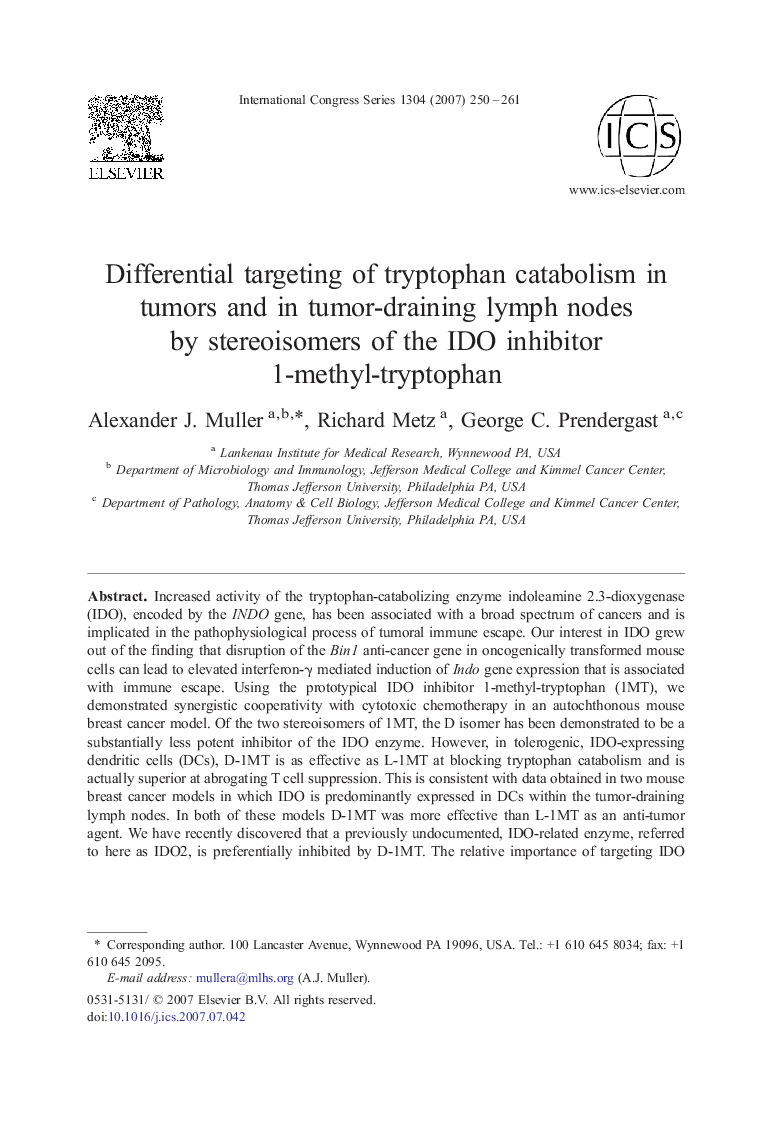| کد مقاله | کد نشریه | سال انتشار | مقاله انگلیسی | نسخه تمام متن |
|---|---|---|---|---|
| 2576399 | 1561353 | 2007 | 12 صفحه PDF | دانلود رایگان |

Increased activity of the tryptophan-catabolizing enzyme indoleamine 2.3-dioxygenase (IDO), encoded by the INDO gene, has been associated with a broad spectrum of cancers and is implicated in the pathophysiological process of tumoral immune escape. Our interest in IDO grew out of the finding that disruption of the Bin1 anti-cancer gene in oncogenically transformed mouse cells can lead to elevated interferon-γ mediated induction of Indo gene expression that is associated with immune escape. Using the prototypical IDO inhibitor 1-methyl-tryptophan (1MT), we demonstrated synergistic cooperativity with cytotoxic chemotherapy in an autochthonous mouse breast cancer model. Of the two stereoisomers of 1MT, the D isomer has been demonstrated to be a substantially less potent inhibitor of the IDO enzyme. However, in tolerogenic, IDO-expressing dendritic cells (DCs), D-1MT is as effective as L-1MT at blocking tryptophan catabolism and is actually superior at abrogating T cell suppression. This is consistent with data obtained in two mouse breast cancer models in which IDO is predominantly expressed in DCs within the tumor-draining lymph nodes. In both of these models D-1MT was more effective than L-1MT as an anti-tumor agent. We have recently discovered that a previously undocumented, IDO-related enzyme, referred to here as IDO2, is preferentially inhibited by D-1MT. The relative importance of targeting IDO versus IDO2 with inhibitory compounds and the possibility of cross-talk between these two enzymes is currently being evaluated.
Journal: International Congress Series - Volume 1304, 1 November 2007, Pages 250–261